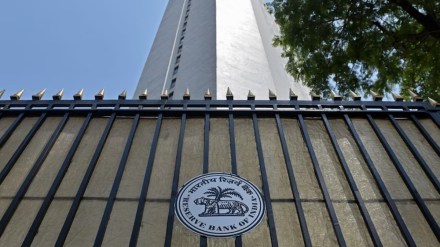The Reserve Bank of India (RBI) conducted a seven-day variable rate repo auction (VRR) for an amount of Rs 1.50 lakh crore. At the auction, the central bank got bids worth Rs 2.01 lakh, indicating at strong demand for funds from banks amid huge liquidity deficit, said interbank call money traders.
The liquidity deficit in the banking system widened on the account of outflows pertaining to advance tax payments and goods and services tax, said call traders. According to the latest RBI data, the liquidity was in a deficit of Rs 1.62 lakh crore against Rs 1.51 lakh crore on Wednesday. Consequently, during the day, the call rates surged to 7% and Tri-party repo rate rose to 6.78%.
Earlier, these rates were in a range of 6.30% to 6.50%, that is, they were at or below the repo rate, which is considered to be the comfortable band for the central bank. Following the sharp surge in overnight rates, the RBI is going to conduct an overnight VRR auction on Monday for a notified amount of Rs 75,000 crore, it said in a press release. Keeping liquidity conditions in mind, RBI will continue coming with VRRs.
“Whenever, rates go up, the RBI conducts VRRs to bring down the rates by injecting funds in the system. That is its(RBI) standard operating procedure,” said a call trader with a private bank.
Going forward, the liquidity is going to remain in deficit as outflows pertaining to goods and services tax are likely to weigh on the system liquidity. Additionally, the RBI’s likely intervention in the forex market will also drain the liquidity, said traders.
“Usually, GST outflows go in tranches. First tranche happened today (Friday). Around 1.5-2 lakh crore is expected to go out of the banking system as GST outflows,” said a call trader with a state-owned bank.
Market participants said that the ease in cash reserve ratio (CRR) is of no help as structural liquidity remains tight. As outflows on account of advance tax payments and GST have outweighed inflows on account of ease in CRR requirements.
